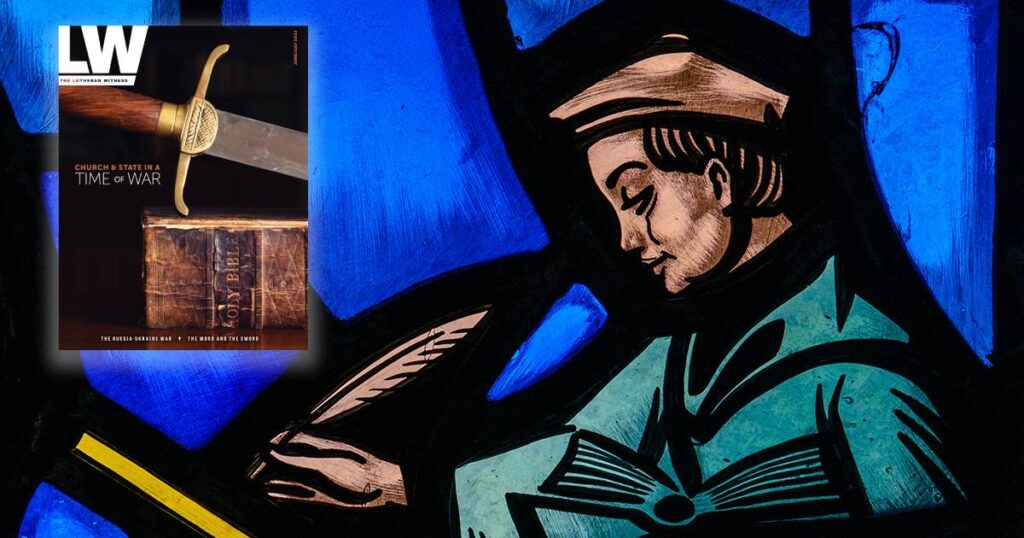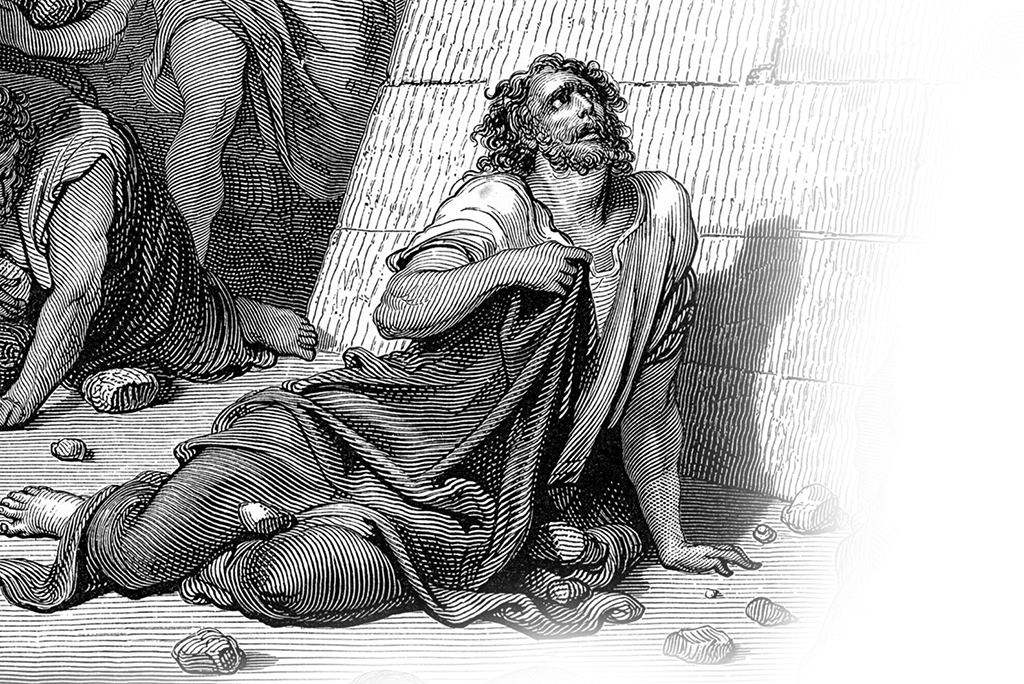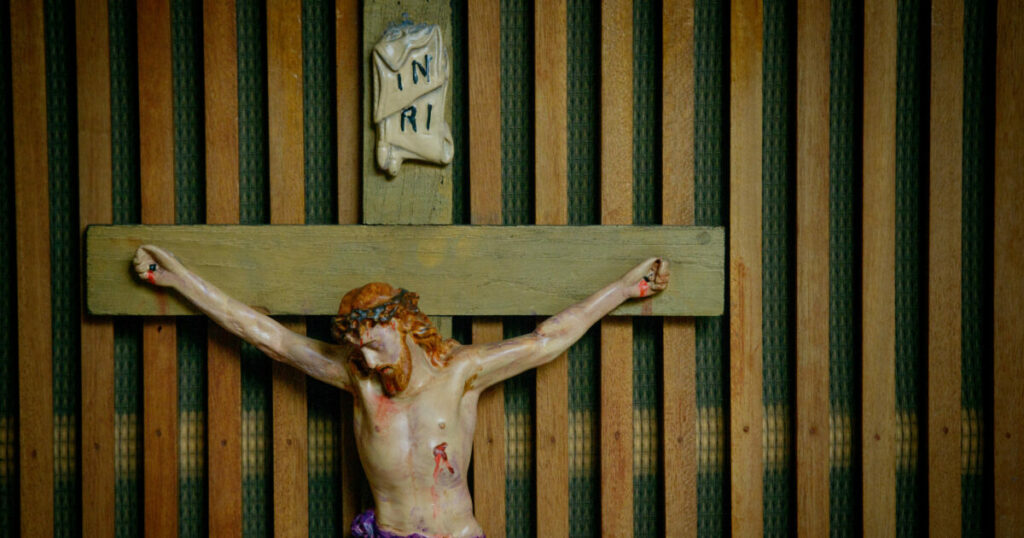War is not without purpose, even for God. Atheists commonly question the existence of God because of horrors such as those we see in Ukraine. We have seen civilians buried in mass graves; we have seen the bodies laid out in the streets. The people of Ukraine have suffered greatly.
And yet, amidst the terrors of war, God remains God. Nothing happens that He does not — at the very least — allow.
Read that last sentence again; it is a hard reality to understand and confess. At times, I struggle with such a reality. How can a good God allow such evil to take place? And yet, you and I both confess on Sunday that He controls and directs history for the good of His church. We confess that He is the “maker … of all things, visible and invisible,” and that Jesus Christ now sits “at the right hand of the Father” controlling things, as last month’s issue taught.
We may never know why God allows some evils to take place. Furthermore, we should also not treat horrific events as merely opportunities to mine little golden nuggets of truth about how these events were “good in the end.” For example, rooting around the effects of a suicide to find out how God might have used it to “help” the family may not do justice to the pain and agony they suffered. God allowed it; we may never know why.
We know that God will work all things for good. We may not understand why or how until we pass through the veil of death, but He has promised to care for us and we believe this promise. And so, in moments when the enemy surrounds you or suffering seems insurmountable, turn to the Lord in prayer. Confess your utter unworthiness and complete confidence in the One who suffered and died for you.
The Psalms are particularly helpful here. David laments and cries out in Psalm 6, “My soul also is greatly troubled. But you, O Lord — how long?” His soul is so crushed beneath the weight of God’s burden that he stutters to finish the sentence; it seems to end in a whispered, “How long?” You may pray these Psalms with David, especially when you have no words to speak.
This issue on war is not a justification of war nor an attempt to make war palatable. Rather, as Jonathan Shaw reminds us, any conversation — even about war — must begin with Jesus. Looking at war from a Lutheran perspective begins with directing our eyes away from the world and toward Christ. That is the goal and intention of this issue. As you see the war on your screens, let it drive you not to doubt God’s good gifts but to cry out in faith with David. And then let it drive you to look to Jesus, the author and perfecter of your faith, who endured the greatest violence of all — the wrath of God poured out on Him — that you might thereby have eternal peace.
Looking to Jesus,
Roy S. Askins
Managing Editor, The Lutheran Witness






